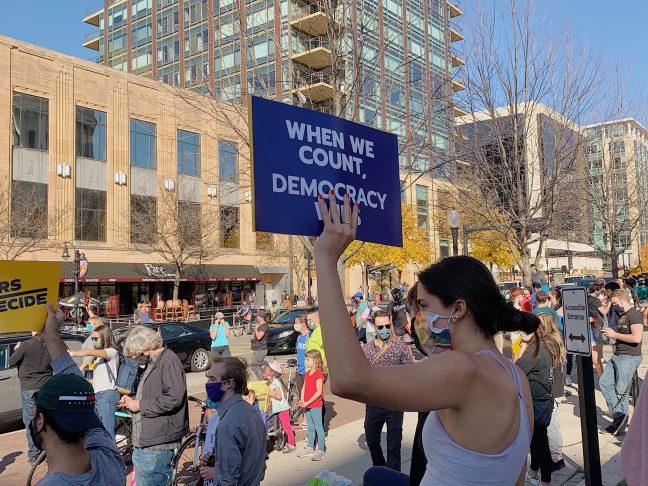In less than a year, the core of education has shifted physically from in-person to online. In the same time period, education has shifted conceptually — especially in politics-related lectures or discussions.
Kenneth Mayer, a professor at the University of Wisconsin Madison, received a plethora of hate comments in 2019 when a student posted Mayer’s syllabus for his class on The American Presidency.
The syllabus included comments that stated former President Donald J. Trump was a “spectacularly unqualified and catastrophically unfit egomaniac who poses an overt threat to the Republic.”
Both Prof. Mayer’s syllabus and the backlash he received encompass a crucial argument in higher education regarding liberal influence in universities. A study conducted by the Pew Research Center stated those who label themselves as democrats tend to think of their professors in warmer regard.
So, yes, a majority of professors express liberal views and share them with their students. But ten years ago, it was easier to present facts about the government in both a neutral and orderly manner. In the current polarized political context, bias and truth tend to bleed together.
Biden must address how “fake news” claims and media distrust continue to fuel Trump supporters
Researches found Trump’s presidency has exacerbated political divides — both internally within the Republican party and externally across partisan lines. Teaching about the most divisive president in history becomes inevitably more nuanced than just stating facts.
For example, Trump called the thousands of people who raided the capital with violent intent and actual weaponry “very special,” while criticizing Black Lives Matter protesters and calling them “thugs.” While the situations had similarities on paper, Trump’s response demonstrates a clear bias.
There is no longer a clear way to navigate politics without navigating values. Professors should not constantly be spitting out their feelings and allowing them to dampen relationships with students, but they also should not have to teach while veiling their own thought processes.
Essentially, while professors should teach factually, inevitably, some course content will be vulnerable to a professor’s critique or praise. Professors should state that their political opinion might be wrong when sharing and allow students to challenge their belief systems.
Biden must address how “fake news” claims and media distrust continue to fuel Trump supporters
Students change their beliefs in college with or without feeling pressure from their professors to align a certain way — this is the influence higher education has on an individual.
Since 2020, people have become strikingly aware of the world around them. In the past seven years, online news subscription purchases have gone up almost ten percent, remaining at an all-time high in 2020. A somewhat neutral recitation of what’s happening can be found on any of those websites.
Many students continue to higher education because they want to learn to think critically as a tool for the real world. The real world is now openly partisan, so learning to steer bias is crucial — whether each professor leans left or right.
If professors continue to hint or admit to their political alignment, perhaps students could learn to have an actual political conversation.
With the general public’s higher awareness of the news also comes a higher intolerance of the other party. A study conducted in October 2020 said 80% of Republicans believe the Democratic party has turned socialist and eighty percent of Democrats think the Republican Party has turned racist.
Closer examination of UW Thompson Center free speech survey reveals inconclusive results
These very beliefs are preventing America’s narrative from being more fluid. The divisive America the world has been experiencing lately is passionate, yet tiring.
Allowing politics to tear relationships apart, including a student-professor relationship at UW is a juvenile mistake. Solutions are not fostered in isolation, they are fostered in cooperation.
Cooperation may be uncomfortable, but it is necessary. So, in the case of Kenneth Mayer, his openness about his alignment may have seemed jarring on a syllabus, but in practice, it is preparing students for the partisan society they have to step into. Honest conversations about where professors lie on the political spectrum will build a student body more compassionate, intellectual and focused.
Sonakshi Garr ([email protected]) is a freshman majoring in pre-business.




















